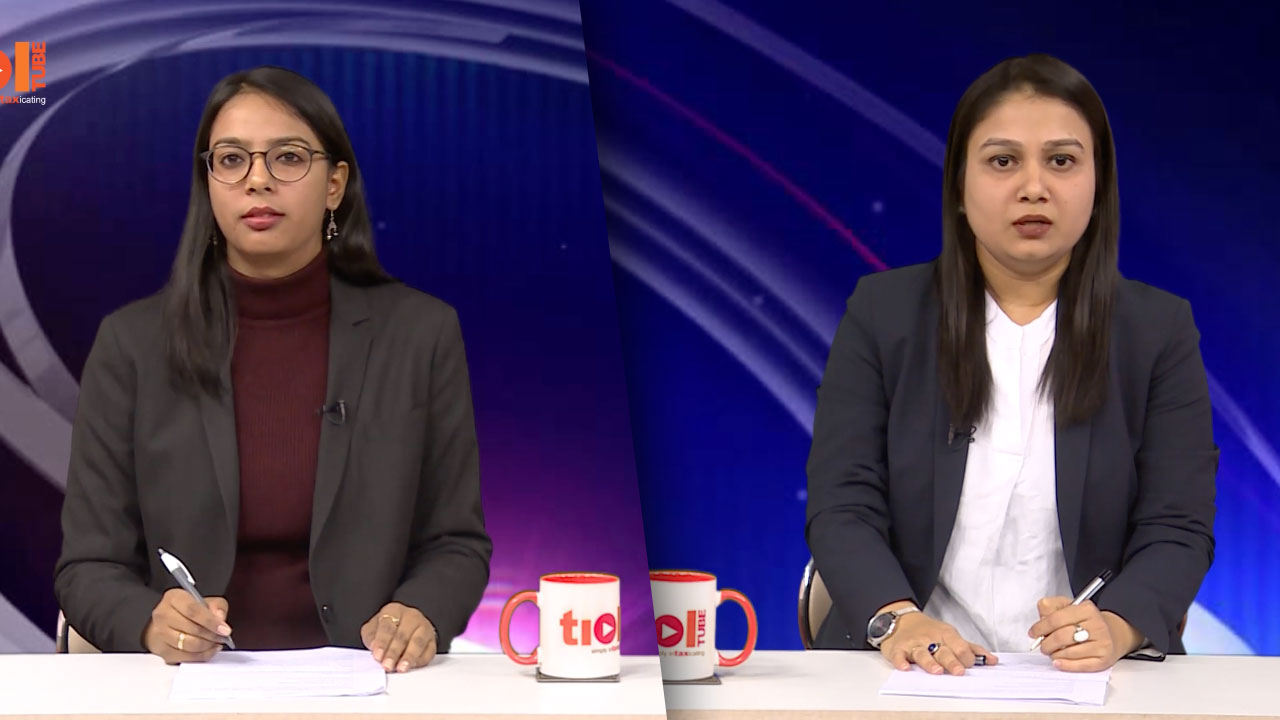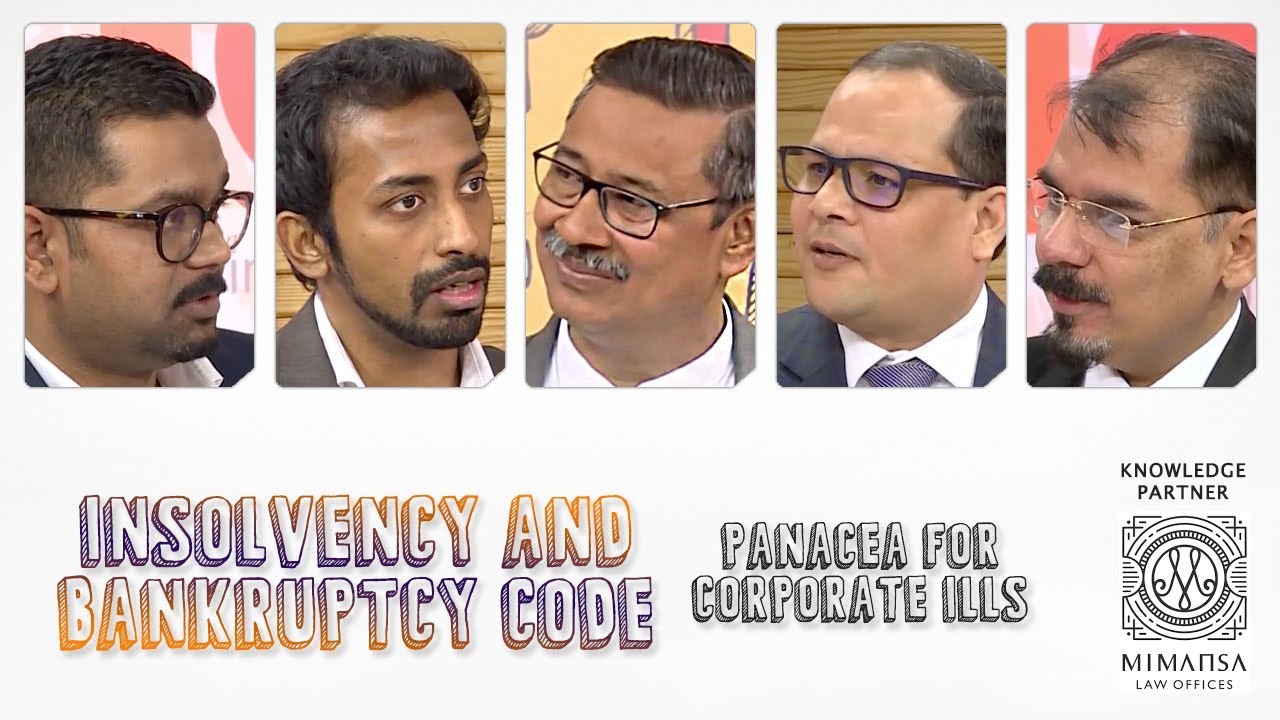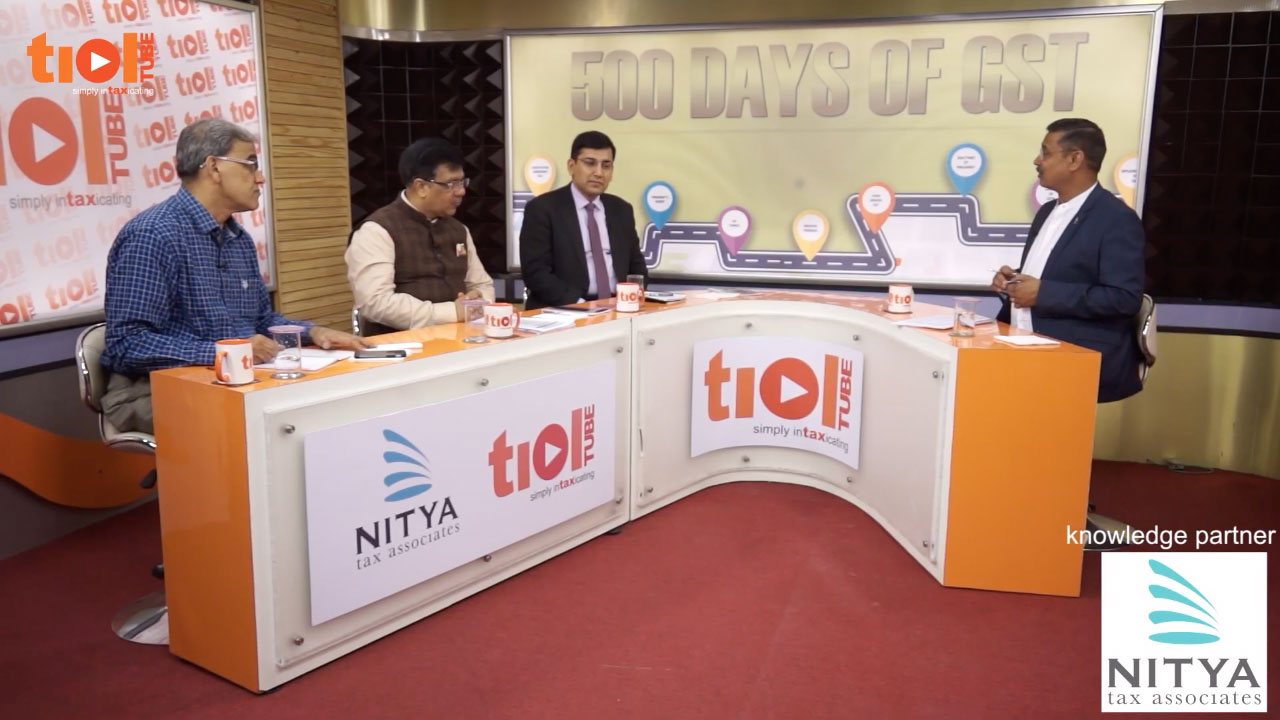SERVICE TAX
2018-TIOL-2644-HC-MUM-ST + Case Story
JSW Dharmatar Port Pvt Ltd Vs UoI
ST - Refund - Retrospective Exemption in certain cases relating to construction of airport or port - Section 103 of the Finance Act, 1994 inserted by Finance Act, 2016 is not unconstitutional - If the concerned Ministry consumes substantial time in issuing certificate, the assessee cannot be non-suited on the ground that the refund application was not filed within the period of limitation - Time consumed by the ministry in processing and granting certificate, as referred to in sub-section (1) of Section 103, must be ignored for the purpose of computing the limitation for making refund application under subsection (3) of Section 103 of the Finance Act, 1994 - No person can be expected to perform a task beyond his control - Even after ignoring the entire period that the Ministry had consumed in granting the certificate, none of the refund applications of the petitioners' would come within the period of six months from 14.05.2016 - It is, therefore, not possible to set aside the impugned orders passed by the concerned authorities, rejecting the petitioners' refund claims - Petitions disposed of: High Court [para 14, 15, 20] ST - Section 103 of the Act is a complete mechanism for recognition of exemption, refund of the tax so exempted with retrospective effect and the mechanism for claiming such refund - Such limitation period cannot be interpreted as merely directory, particularly when subsection (3) in addition to providing the period of limitation, overrides any other provisions of the chapter, which may be to the contrary - For claiming refund under the said provision, limitation period prescribed elsewhere cannot be adopted ignoring the period prescribed in subsection (3) of Section 103: High Court [para 16, 19]
ST - Reading down a statutory provision in order to save it from the vice of unconstitutionality is a well know interpretative technique often times employed by the Court: High Court [para 14]
- Petitions disposed of
: BOMBAY HIGH COURT
2018-TIOL-3828-CESTAT-MUM
Thyssenkrupp Industries India Pvt Ltd Vs CCE & ST
ST - 30/2012-ST - Tax payable under Partial reverse charge mechanism - Upon pointing out by audit, Appellant promptly paid service tax due along with interest - in adjudication proceedings, equivalent penalty imposed - appeal to CESTAT against penalties.
Held: It cannot be said that only because Audit party had pointed out the non-payment, suppression of fact is made out - It cannot also be established that appellant had any malafide intention to suppress its duty liability - Issue is a bonafide dispute of legal interpretation of newly introduced provisions coupled with the fact that transaction concerning availment of such services has been reflected in ST monthly returns, no malafide can be attributed so as to call for imposition of penalty of any kind - Appeal allowed: CESTAT [para 7, 8]
- Appeal allowed: MUMBAI CESTAT
2018-TIOL-3827-CESTAT-MUM
Shree Electricals Works Vs CCE & ST
ST - Manpower Services - Mismatch in the return and actual turnover of the appellant - case detected by the department after obtaining information in writing from MSEDCL regarding manpower supply by appellant - that is non-payment of service tax was detected from the point of service receiver - tax amount collected from client was withheld and not paid to the government - SCN indicates that the service tax dues were paid after being persuaded by the Preventive Officer and which indicates that the same had not been paid voluntarily after bringing the matter to its notice - such ground not refuted by the appellant - no man of ordinary prudence can say that keeping the tax component calculated by it without depositing the same in the government treasury is not an act of suppression with intent to misappropriate the same - impugned order is upheld and appeal is dismissed: CESTAT [para 5, 6, 7]
- Appeal dismissed: MUMBAI CESTAT
2018-TIOL-3826-CESTAT-MUM
Rohan Builders India Pvt Ltd Vs CCE & ST
ST - CENVAT - There is no mechanism available for determination of admissibility of CENVAT credit in the self assessment era for which EA 2000 audit procedure has assumed its importance -Idea behind such audit is to reasonably ensure that no amount which under the central exise law is chargeable as duty escapes taxation and the process of verification is always carried out in the presence of the assessee and in the process the auditor is required to discuss the matter with the assessee and advise him to follow correct procedures in future - EA-2000 is a participative audit and likewise is CERA audit - It cannot, therefore, be said that only because audit party had found non-observance of partial reverse charge mechanism procedure, appellant is to be tested for suppression etc. - in such a situation, it cannot be said that there was any intention to suppress tax liability by the appellant since it has subjected its account statements to the scrutiny of the audit party - having regard to the fact that such irregularity was found in EA audit vis-à-vis prompt payment of service tax and subsequent payment of penalty in conformity to section 78B, a confirmation of penalty u/s 78 is uncalled for - Appeal allowed: CESTAT [para 8, 9]
- Appeal allowed: MUMBAI CESTAT
CENTRAL EXCISE
2018-TIOL-2640-HC-MUM-CX + Case Story
Otis Elevator Company India Ltd Vs CCE
CX - Valuation - Reasoning given by Tribunal is cryptic and falls short of the expected legal standards - Being the final fact finding authority, it was expected to apply its mind independently to the materials which were before the adjudicating authority - That is but a final opportunity to a litigant like the assessee - Court can deal with only substantial questions of law - Once the last or final appellate authority or fact finding authority fails in its duty in law, then, Bench has no alternative but to quash and set aside its order and remand the case back to Tribunal: High Court [para 14 to 16]
- Matter remanded
:
BOMBAY
HIGH COURT
2018-TIOL-3825-CESTAT-MUM
CCE Vs Maharashtra Electrosmelt Ltd
CX -Valuation - Section 4 of the CEA, 1944 - Respondent is a subsidiary of M/s Steel Authority of India Ltd. and they are related is not in doubt - Respondent is also a speciality manufacturer and while operating as an independent manufacturer, their expertise was resorted to by the parent company on their raw materials for a process where product was to be used in the steel plant - cost of conversion is not market-determined but specifically agreed upon by the two entities - in such circumstances, the special provision of rule 8 of the Valuation Rules, 2000 is to be invoked to the exclusion of all others - in the Board Circular 643/34/2002-CX dated 01.07.2002 it is clearly indicated that where goods are transferred to a sister unit or another unit of the same company, valuation will be done as per the proviso to rule 9 and which proviso requires that the value shall be determined in the manner specified in rule 8 where the related person does not sell the goods but consumes the same in the production or manufacture - assessment adopted by the original authority is strictly in consonance with this Circular - furthermore, there is no allegation that the computation of value u/r 8 has ignored or excluded any includible element - Revenue appeal dismissed: CESTAT [para 4, 5]
- Appeal dismissed: MUMBAI CESTAT
2018-TIOL-3824-CESTAT-MUM
Rathi Dye Chem Pvt Ltd Vs CCE
CX - Appellants are manufacturers of dyes & chemicals and have cleared the same to various dealers, distributors and manufacturers -Revenue alleges that M/s JTC is a related company and, therefore, the price at which M/s JTC have sold the goods further to their customers should be held to be the assessable value in terms of s.4(1)(b) of the CEA, 1944 read with rule 9 of the CE Valuation Rules, 2000 - another allegation is that the appellant have paid over-riding commission to M/s JTC and on that account CE duty is payable by them - in the first round of adjudication, the original authority dropped the demand but in Revenue appeal the matter was remanded by Commissioner(A) whereafter the demand was confirmed by the original authority and the same is upheld by the Commissioner(A) - assessee is in appeal against this order.
Held: Appellant is a private limited company whereas M/s JTC is a partnership firm and, therefore, they cannot be related - also for the reason that Sh. H J Rathi is the Managing Director of the appellant and also the Manager of the Trust, which is a partner in M/s JTC cannot be the sole reason for holding that the appellants and M/s JTC are related - No element of mutuality of interest and flowback of money from M/s JTC to the appellants is either alleged or evidenced - M/s JTC are also not held to be inter-connected undertaking, therefore, the situation enumerated in section 4(3)(b) of the CEA, 1944 is not fulfilled - only fact that M/s JTC has a temporary office in the premises of the appellants and some staff members of M/s JTC are sitting there, by itself, cannot become a valid ground to hold them to be related - lower authorities have also completely ignored the submissions made by the appellants regarding the quantum of sale made by them to M/s JTC - inasmuch as appellants do not sell the entire quantity of goods to M/s JTC, therefore, invocation of rules 9 or 11 is bad in law - moreover, it is submitted that the price at which the goods were sold to M/s JTC were at many times higher than the rate at which they have sold to other customers - insofar as over-riding commission is concerned, the same cannot by any stretch of imagination be considered as a flowback of money - appellants have been regularly filing declaration under rule 173C of CER, 1944 and, therefore, no suppression of facts can be alleged - demands confirmed against appellant do not survive either on merits or on limitation as the demand itself has been held to be unsustainable - consequently, interest, penalty imposed would automatically go - all the appeals are allowed with consequential relief: CESTAT [para 7, 7.1, 7.3, 8, 8.1, 8.2, 8.3, 9]
- Appeals allowed: MUMBAI CESTAT
2018-TIOL-3823-CESTAT-CHD
Montage Enterprises Pvt Ltd Vs CCE & ST
CX - The assessee is having a manufacturing unit availing area based exemption under Notfn 56/2002-CE - The dispute is with reference to valuation of final products cleared by assessee - The assessee valued the products by including outward freight element and paid duty later and claimed re-credit/refund of such duty in terms of said notification - The Revenue objected to the valuation, more specifically the inclusion of freight element for paying duty and for claiming refund - The impugned order records that assessee has not produced anything on record which would show that they had cleared the goods from factory gate to a warehouse, any other premises, a depot, consignment agents premises from where such excisable goods were sold - Admittedly, the goods sold by assessee delivered at the buyers premises will not make the place of removal as buyers premises - Following the ratio of Apex court in Ispat Industries Ltd. - 2015-TIOL-238-SC-CX , there is no justification for assessee to consider the assessable value with inclusion of freight element after the goods were sold/removed from the factory - As such, the question of paying duty on such value addition to be covered by exemption under Notfn 56/2002-CE does not arise - Accordingly, the claim of assessee is not sustainable - The another issue is with reference to sales returns of certain finished goods earlier cleared by assessee - Some of the goods cleared by assessee were rejected by buyers for some reason and were returned back to assessee - Denial of concession under notfn 56/2002 for assessee, is not justified by any provisions of law - In fact, impugned order admits that there is no specific provision to cover such situation - However, presuming a possible attempt in availing undue advantage, the lower authority held that assessee is not eligible for concession under said Notfn when the goods were re-cleared, after processing - Procedure for return of goods and re-clearance was clearly cover by the provisions of CER, 2002, and the assessee followed the same - There is no allegation of violation of any provision of said Rule or above mentioned notification - In absence of any contrary legal provision, the concession available under said Notfn on payment of duty on the goods cleared by assessee cannot be denied: CESTAT
- Appeals partly allowed: CHANDIGARH CESTAT
CUSTOMS
2018-TIOL-3822-CESTAT-AHM
Core Health Care Ltd Vs CCE & ST
Cus - The assessee filed an appeal alongwith the stay application - It is observed that the Commissioner (A) rejected the appeal for non compliance of pre deposit - The issue involved is that whether the assessee's product Amino acid imported is eligible for exemption under notfn 16/2000-Cus on the facts that the same was used for manufacture of intravenous amino acids which contains carbohydrates and electrolytes - Since the appeal was dismissed by Commissioner (A), for non compliance of pre-deposit and not decided the merit of the case, the matter needs to be remitted back to Commissioner (A) - However, as regard stay application, assessee has strong prima facie case in their favour as per the judgments of Tribunal in case of Tablets (India) Pvt. Ltd which was upheld by Supreme Court and also the judgment in case of Fresenius Kabi India Pvt. Ltd. - Accordingly, being the matter prima facie in favour of assessee, there is no need of any pre deposit for hearing the matter - Therefore, pre deposit waived and matter remanded to Commissioner (A) to hear on merit - The matter being very old, Commissioner (A) is directed to decide the appeal within 3 months: CESTAT
- Matter remanded: AHMEDABAD CESTAT
2018-TIOL-3821-CESTAT-BANG
Kirloskar Ferrous Industries Ltd Vs CC
Cus - The assessee had entered into Sale Contract with M/s. KOWA Company Ltd., Japan for export of iron ore fines in bulk - Accordingly, assessee had exported iron ore fines with Fe content of 61% as per the final Invoice and Shipping Bill - They submitted application for refund of excess customs duty paid on exported goods - The assessment of shipping bills was provisional in terms of Section 17 of Customs Act pending receipt of original documents and chemical examination report - On finalization of assessment, the Assistant Commissioner sanctioned the refund after examining that the excess customs duty paid by assssee has not been passed on to the buyer - O n identical issue, this Tribunal in case of Dream Logistics Co. India Pvt. Ltd. & others - 2017-TIOL-1918-CESTAT-BANG has allowed the appeals of assessees by relying upon the judgment of High Court of Andhra Pradesh in case of Asia Pacific Commodities Ltd. - Therefore, in view of aforesaid decision, the impugned order is not sustainable in law, same is set aside: CESTAT
- Appeal allowed: BANGALORE CESTAT








